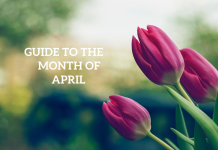
Age 38 is when I officially began attending more funerals than weddings. In the past two years, I have been to 6 funerals and 0 weddings. Not just funerals of acquaintances: My grandma. One of my best friends. My husband’s aunt and uncle. A high school friend. My mentor of 25 years.

There’s a lot of research about grief and the stages of grief: denial, anger, bargaining, depression and acceptance. I’m not a grief expert and what I write here is not the result of a research project. This is just me sharing my own experience with the hope that some of you might relate and feel for a moment that you’re not alone. I also acknowledge those who have lost a sibling, parent, spouse or child, because I have not, and I believe that is probably a completely different level of grief. I can only write about my own personal experience.

Sometimes I find myself experiencing an emotion that seems out of place or questioning why I am feeling a certain way and then all of a sudden it hits me: it’s grief. And this is what I have learned so far:
1. It’s exhausting. You find yourself wondering why you’re SO tired. Bone tired. You may not have exerted yourself physically, but the emotional energy expended processing grief is exhausting.
2. It follows you around as an underlying sadness. Life is seemingly happy and everything is pretty good. But you can’t shake this sadness and at first, it doesn’t make sense: until you remember.
3. It can pop up in the strangest of places. Maybe it’s a smell, a song lyric, a place, a time of year that just floods you with memories or sadness or a smile of remembrance.
4. It doesn’t go away. At first, you think grief is like your first heartbreak, it will get better, it will go away in time. Maybe it dulls, but it never goes away.
5. It can make you mean. Sometimes I just snap at my kids and it’s because the grief is heavy in my heart and I’m distracted by it. Once, just days after I lost one of my best friends to breast cancer, I saw a woman with a “survivor” shirt on and I got mad at her. Why did she get to live? Yes, I was embarrassed for feeling that way, but it was a gut level reaction born from grief.
6. It makes us do hard things for the people we love. One day I went from what I knew would be the last visit with my mentor straight to speaking at the memorial service for one of my best friends. I was dreading both of those things on the drive there. I almost just gave up and chickened out. But I love these people and for them, I will do the hard things to remember and honor their lives.
7. It makes you think about your own mortality. When my grandma and my close friend died within a month of each other, I really started to think about my own death. Would I be 84 like my grandma or 43 like my friend? Who would be there? Would anyone say something significant at my funeral? Would I have left behind a legacy of faith? Would they say my life was focused on the things that matter most?
8. It makes you think about what you will leave behind and to whom you will leave it. My parents were responsible for cleaning out my grandma’s house and going through all of her things. Boy did that make me think about what I would leave behind. Who would be reading my journals from junior high or my New Year’s Resolutions from 2002? It made me wonder exactly why I keep so much stuff.
So what’s my point? Are you in this process somewhere? Do any of these things sound familiar? If so, I believe that it’s normal. It’s the new normal for your life and it’s okay.

Are you facing the loss of someone important in your life? Do you still have time with them? Here’s what I would recommend (and I was not perfect in this, so learn from some of my mistakes!):
1. Do the hard things: make an effort to visit, send that card or care package, make that awkward phone call, be there as much as you can. These are things you will never regret. Take it from me, who carries a few regrets in this area.
2. Don’t underestimate the written word. If you can’t visit a friend who is dying, send a letter telling her what she means to you. If someone special to you has passed away, send cards to their family on birthdays and holidays. Jot down a precious memory you have of that person and send it in a note to someone else who is grieving with you and would love to hear a story they might not know about the person they are missing.
3. Write down as many memories of that friend as you can remember. After one of my best friends passed away, I sat down and wrote down every memory I could remember of us together. It was so good to smile, cry and remember those moments. I also I knew that now I would never run the risk of forgetting because I could go (and have gone) back to that journal to read those memories.
If you are experiencing these thoughts and feelings, you are not alone. Is there anything you would add to my lists?
















